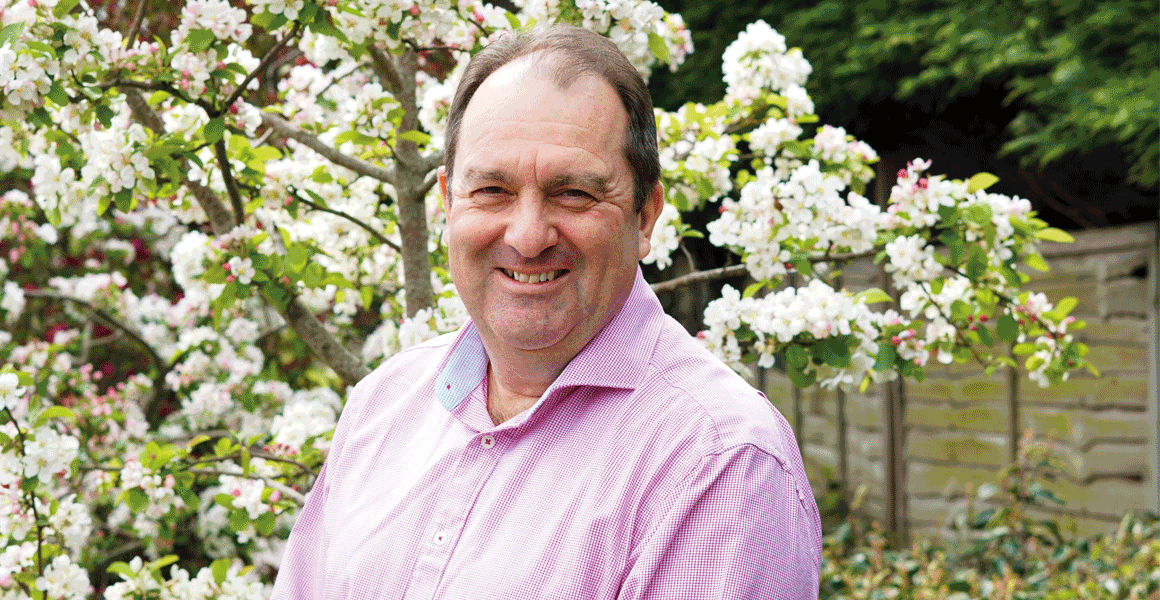Thatchers sales director Chris Milton discusses how retailers can drive cider sales this summer and what areas of the market you should invest in to grow your profits
Company CV
Company Thatchers
Sales director Chris Milton
Profile Chris has worked for Thatchers as sales director for more than 10 years. Before that, he was national sales manager at brewer Hall & Woodhouse.
Latest news Thatchers Rosé cider has announced listings with Booker and Co-op after initially launching in Sainsbury’s.
RN What are the biggest opportunities for retailers in cider this summer?
Chris Milton Cider overtrades in convenience stores compared to supermarkets because when the sun comes out, it’s a convenience store that shoppers go to for a chilled four-pack. If you pick the right premium brands, you can make more money in cider.
With apple cider growing value ahead of volume, it’s clear that the category isn’t suffering from the same downtrading that flavoured cider is, where volume is growing ahead of value.
RN How can retailers increase both apple and flavoured cider sales?
Chris Milton There’s room for flavoured and apple cider to grow together in the market. About a third of shoppers just buy apple cider, while more than 39% just buy fruit, which shows that both segments can grow together with little overlap or sales being taken from the other.
We see fruit doing a good job introducing new shoppers to the category, but then 63% of repeat purchase spend goes on apple products. The sectors reach different demographics.
RN How is the cider category expected to grow?
Chris Milton Cider is consumed by less than half of adults in the off-trade, compared to wine at 63.8%. Frequency is also the lowest for cider at 10.9 trips per year compared to the wider alcohol category at 44.5 trips. If we can get that frequency up by promoting cider as a year-round drink rather than just in summer, then we can unlock a lot of extra sales for retailers.
Apple cider still makes up the bulk of sales, with two-thirds of cider products coming from this sector, despite the surge in fruit cider products. Apple is the most popular cider style, so don’t ignore it in favour of fruit.
RN How can retailers communicate the quality of products to their customers?
Chris Milton We see that pubs play on craft and experimentation, but retailers can also cash in on this, too.
If you look at what Dike & Son is doing in Dorset with fantastic cider displays or MJ’s in Oldham, which is a destination for premium products, then we can see that independents can be the place where shoppers discover quality lines.
RN How are you driving cider sales behind the category’s West Country heartland?
Chris Milton For the past two years we’ve been the biggest media spender in the cider category and we’ll be sponsoring more events in the future and taking our mobile cider bar on its biggest-ever tour.
Scotland is an interesting opportunity for us – minimum unit pricing has been a huge benefit. Cider is in decline in Scotland but we’re in double-digit growth. We’ve got distribution there, now we need to invest more in getting into stores and driving sales.
RN How are you driving in-store activity?
Chris Milton Two years ago, my field sales team was made up of four people, now it’s 25. We consider them cider ambassadors who can give assistance on the wider category, not just our products.
We’re driving growth with our own range, too. In the off-trade, Thatchers is growing at 22.9%, ahead of total cider and perry. Thatchers Gold is the second-biggest-selling apple cider in terms of value, and Thatchers Haze is the top-selling cloudy cider.
RN How is Thatchers catering for the rise in low alcohol?
Chris Milton We’re actively looking at it. I’ve seen low-ABV ‘launch’ at least three times in my career, but this time is different as it has the consumers behind it who are demanding choice.
We will launch a low-alcohol Thatchers when a consumer can drink it and recognise that it tastes like Thatchers.
RN How is Thatchers helping retailers become more sustainable?
Chris Milton We have recently removed 70 tonnes of aluminium from our cans, and we’re looking at investing in solar panels at our production site in Somerset. I’ve seen deposit return schemes work in Australia, Canada and Scandinavia, and it’s clear that change is coming here.
I’m against adding cost into any system, but we know consumers want it and we know it’s coming in. Now it’s up to us to work with retailers and the government to make sure it’s done in the right way.
More industry profiles: Britvic’s director of sustainability, Trystan Farnworth



Comments
This article doesn't have any comments yet, be the first!